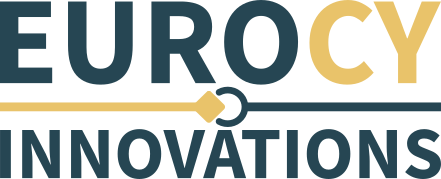Progress update for the DEMOER project
See what we have been doing until today...
2020 July 18
DEMOER (www.dementia-care.eu) is a European funded Project (2019-1-ES01-KA204-063975), which started in November 2019. The consortium of the project consists of partners from Spain, Bulgaria, Cyprus, Belgium, and Turkey. The project is developing an innovative mobile adults training for family members of people suffering from dementia.
Dementia is a decline in mental abilities, in which memory, thinking, and judgement are impaired, and the personality may deteriorate. It usually develops slowly and affects mainly people over 60 years old. It is one of the most important causes of disability in the elderly in Spain, Bulgaria, and Turkey (according to WHO). Since the proportion of the elderly people is continuously increasing, the number of dementia-affected patients will also rise (expected to raise by 12% in the next 10 years in Spain, and by 20% in Bulgaria and Turkey). The care and support for these people has a serious impact on their families. There is a lack of non-formal trainings available on the topic presenting the strategies and tips which can support those that are supporting their family members suffering from dementia in an understandable manner.
DEMOER project designs informal training for adults - family members of people with dementia - to understand practical issues of the situation they are facing and provide effective support to the person who suffers from dementia. In parallel, we are raising awareness among European citizens and decision-makers in the countries of the organizations participating in the project about dementia itself and also about the need to support and provide training to families with members suffering from dementia.
On 12-13 December 2019, the kick-off meeting of the project took place at the Universidad Complutense De Madrid (Spain), gathering all partners from Spain, Bulgaria, Cyprus, Belgium, and Turkey together. We recently completed the creation of an adult guide named “How to support your family member with dementia”. This guide provides adult learners with tips and strategies to react in case of memory loss of a family member with dementia, which may cause different situations and consequences. The content is created in a way that does not depend on any medical or psychological background as a prerequisite.
The guide is divided into three modules:
In Module 1, carers can find information on how to support their family member with dementia in case of memory loss and related issues. Module 1 discusses how a carer can seek for professional support and diagnosis, understand dementia through its different stages and get an insight on the consequences of memory loss.
Module 2 is divided in two sections. Section 1 provides information on how to support your family member with dementia at home and Section 2 discusses the personality changes that people with dementia may face and the related consequences. Section 1 gives guidelines regarding the physical activity, personal hygiene, and physiological issues, eating and sleeping issues, and on how to deal with the “unusual behaviour”. Section 2 presents information on how to emotionally support someone with memory loss, looking also after yourself and other family members and in general, how dementia affects the entire family.
Module 3 includes important information regarding dementia and apraxia, how to deal with behavioural changes at the later stage of dementia and discusses strategies to cope with loss and grief. The guide provides directions and tips in simple language to be useful and accessible to the everyday user, who do not have a related background. The guide also includes many case studies describing the experiences of other people with dementia.
We also conducted additional research on assistive technologies and intervention tools for people with dementia and their caregivers. Technology is not only helping dementia patients, but also their caregivers in numerous ways. Carers of people with dementia could benefit from technologies that help them with delivering, tracking, monitoring and coordinating the care they provide, as this will save them time, reduce their stress and help them become more effective and efficient. Caregivers cannot be around their patients all day and at the same time be able to provide the same quality of services. On the other hand, technology can help in this, despite it cannot fully replace the human factor.
In general, the guide includes information on specific assistive technologies suitable for people with dementia and on technologies carers can use to support their work, as well as information on cognitive skills development through games - most of them are free and can be found on the web. Among the resources we also have games for skills development, games focusing on memory, attention, visual perception, reasoning and planning, information processing and sequential processing. These resources come from research and development we undertake in another European Erasmus+ project named Games4Seniors (www.games4seniors.eu) that focuses on the development of a tablet application with which seniors can train themselves in the abovementioned skills.
You can download the files that are relevant to Assistive Technology for people with dementia from our web page at: www.dementia-care.eu/intellectual-outputs/
As a next step in the DEMOER project, we will develop a wizard-style open-mobile application that will provide 24/7 help on solutions for specific problems. Carers can download the application when released on Google Play. It will allow mobile training, whereby users will be able to contribute with case studies and use it as useful material. An additional innovation is that users and their peers will be able to share content, opinions, feedback, and materials with other users. A guidance toolkit for adult trainers including methodological support on the delivery of the DEMOER course will be released. The purpose of this output will be to produce guidance material for workers and educators at NGOs and volunteering organisations dealing with the organisation of dedicated carer trainings on how to deliver the DEMOER non-formal training course.
Stay tuned! More interesting information is coming...
